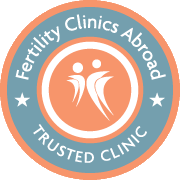Is my uterus baby friendly? Understanding common uterine conditions
by Ermina Konstantinidou, last updated 06 May 2024,
5 min read
Embarking on the journey towards parenthood can be a wondrous adventure, yet for some women, the path might include navigating certain uterine conditions that impact fertility and pregnancy. While the prospect might seem daunting, it's essential to remember that many women successfully conceive and welcome healthy babies even while dealing with these conditions. In this article, we'll shed light on common uterine conditions, unravel their effects on pregnancy, and explore how our specialized care at Newlife IVF Greece can empower you on this remarkable journey.
Unveiling Uterine Conditions
Uterine abnormalities, often referred to as congenital uterine abnormalities, encompass a range of shapes and sizes that a woman's uterus can naturally possess. While some of these variations might raise questions about their influence on fertility and childbirth, it's important to know that modern medical advancements and tailored treatments can help overcome many challenges.
Here are the most common uterine conditions, how they affect pregnancy and what you can do about them:
Bicornuate Uterus:
The top of a bicornuate uterus is deeply indented (heart shaped). Although there is a tiny increase in the risk of miscarriage and premature birth, women with a bicornuate uterus do not experience any additional challenges during conception or the first trimester. Later in the pregnancy (in more severe cases), it may also have an impact on the baby's position, making a c-section (cesarean) necessary.
Most of the time, surgery is not necessary to treat this issue. A procedure known as metroplasty can be used to treat a bicornuate uterus surgically. However, this approach is debatable and is only used in certain situations. The desired upside-down pear shape of the uterus will be restored with this operation. Metroplasty can be performed laparoscopically, which is minimally invasive and does not need a significant incision. During surgery, the tissue causing the heart-shaped look is removed.
Unicornate uterus:
A unicornate uterus is quite uncommon. As a result of one side not developing, the uterus is just half the size of a typical uterus. Preterm delivery, late miscarriage, and ectopic pregnancy are all more likely. Also, later in the pregnancy, the baby can be in an inconvenient position, requiring a c-section (cesarean). Although unicornate uteruses are more common in women facing fertility issues, women with them can still become pregnant.

Septate uterus:
A wall of muscle that descends the middle of a septate uterus divides the uterus into two. Sometimes the wall of the uterus (subseptate) only descends partially, and other times it goes all the way down (septate). Difficulty to conceive is more frequent in women with subseptate or septate uteruses. Preterm births and early miscarriages are also more likely. You could be advised to have a c-section if you are in a later stage of pregnancy, since the baby might not be in a head-down (cephalic) position.
Surgery is not always required in this case and depends on the severity of the case. A septum can only be removed surgically with a metroplasty, similar to the bicornuate uterus. The septum is sliced or removed during the procedure. After the septum is removed, the uterus becomes one uterine cavity rather than two (like a typical uterus).
Arcuate uterus:
The arcuate uterus resembles a regular uterus in appearance, but it has a dip at the top. It does not increase your risk of preterm delivery or early miscarriage.
Uterine Polyps:
Endometrial polyps are common and can negatively affect implantation, as sometimes they can act as a natural coil based on where they are located in the endometrium. When their removal is required, this can be done through hysteroscopic removal.
Uterine fibroids:
Fibroids or otherwise called myomas are benign tumors of the muscle wall of the uterus. They are fairly common in women that may be facing fertility issues, however they are not always the primary cause of infertility. They affect fertility by blocking the fallopian tubes or the cervix, by impacting the endometrial lining acting as a natural coil or by affecting the uterine blood flow. Treatment depends on the severity of the condition.
Some common treatments are:
- Medications to shrink the fibroids: GnRH analogues, Ulipristal acetate
- Surgery: Hysteroscopic resection of fibroids, hysteroscopic morcellation of fibroids, myomectomy, hysterectomy
Chronic Uterine infections:
Usually referred to as endometritis, they can either be acute or chronic. Despite not being a congenital uterine abnormality, endometritis holds significant relevance in the realm of uterine health. Characterized by inflammation of the endometrial lining, usually triggered by bacterial infections or other factors, this condition can pose challenges for conception and pregnancy maintenance. The persistent inflammation may hinder successful embryo implantation, emphasizing the importance of early detection and appropriate medical management.
Guiding Your Path with Expertise
Every individual's journey is unique, and our team at Newlife IVF Greece recognizes this. We specialize in tailoring treatments to your specific needs, ensuring you receive the care and guidance necessary to enhance your fertility journey. Our expertise extends beyond treating uterine conditions, encompassing the broader landscape of fertility challenges, including those involving male factors.
Your Dreams, Our Commitment
Are you ready to take the next steps on your path to parenthood? Our dedicated team is here to support you at every turn. Contact us today by clicking here to embark on a journey that holds the promise of fulfilling your dreams and creating the family you've always envisioned.

Ermina is a Midwife and an International Patient Coordinator at Newlife IVF Greece.










